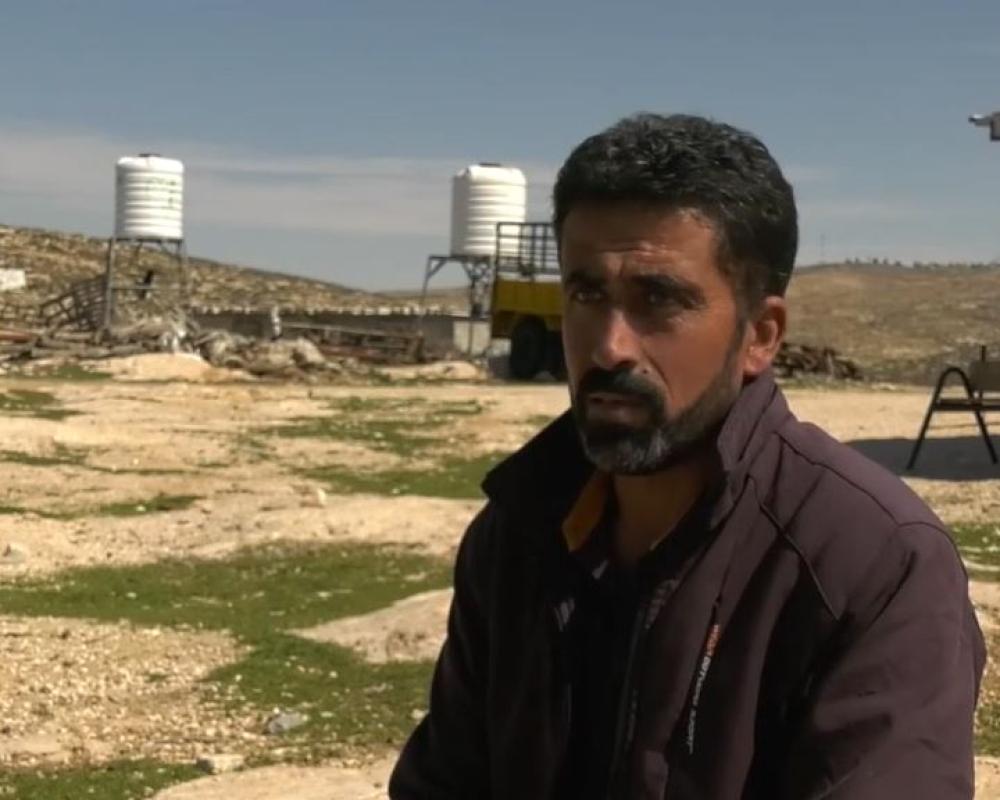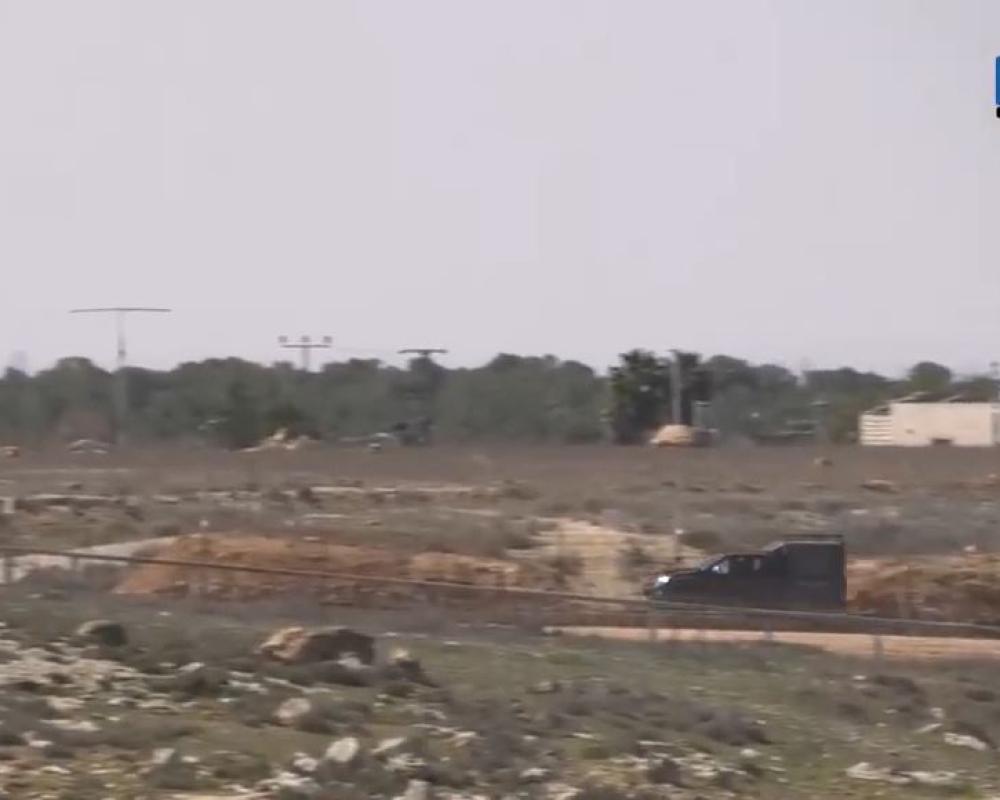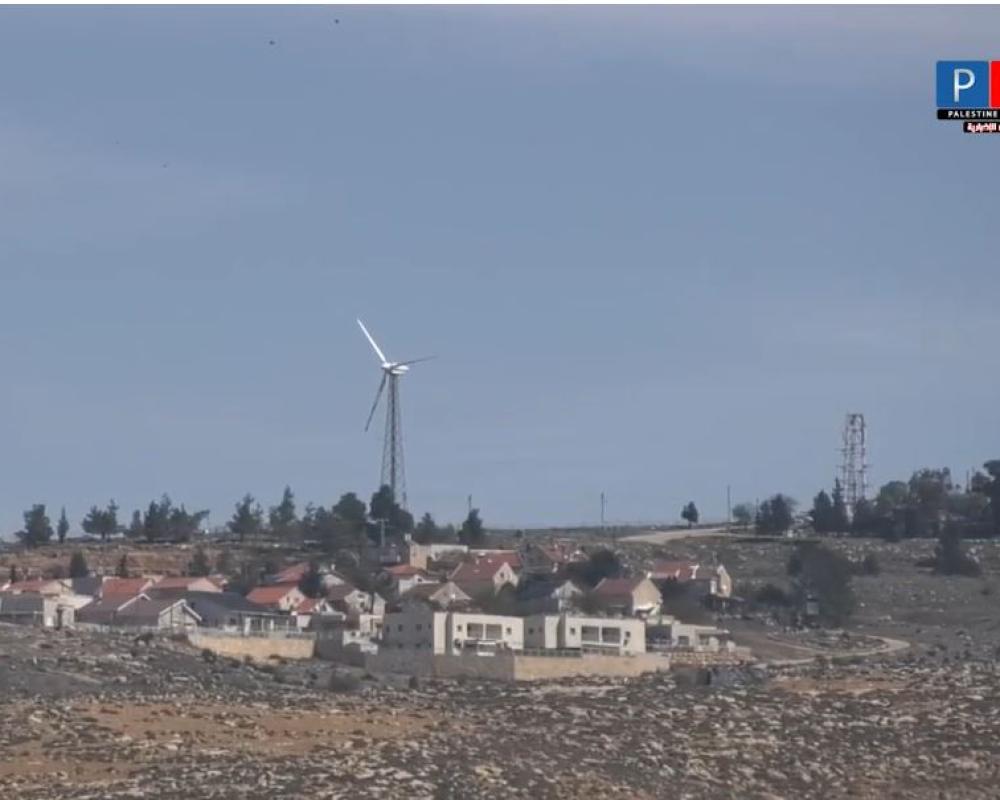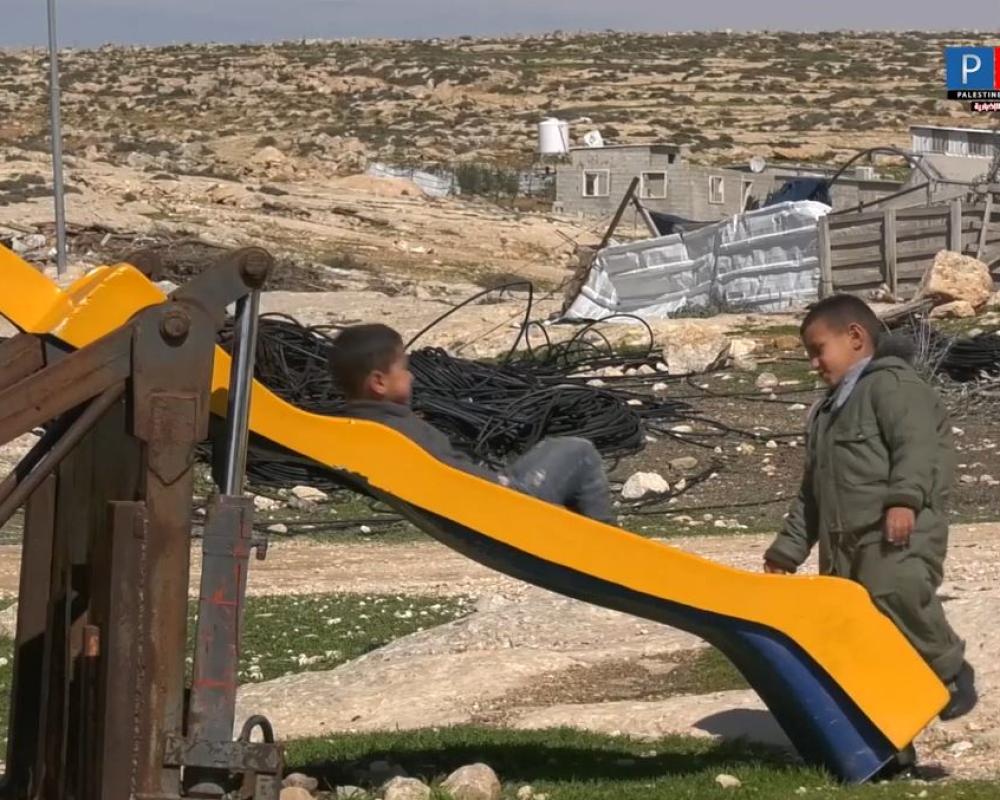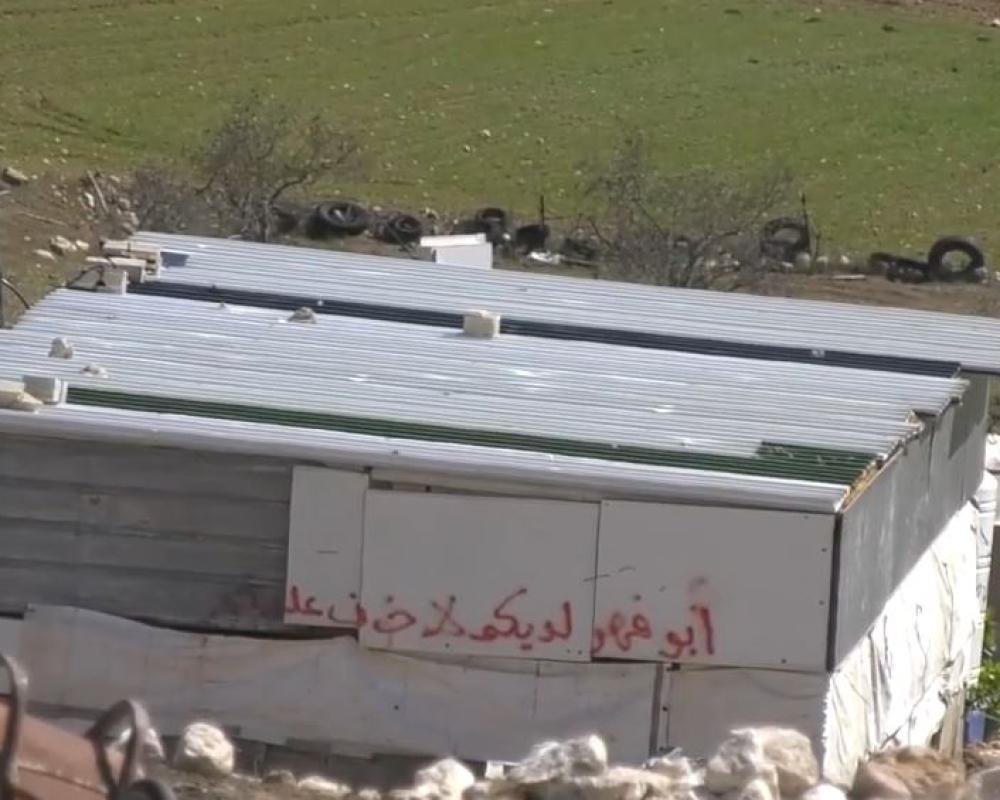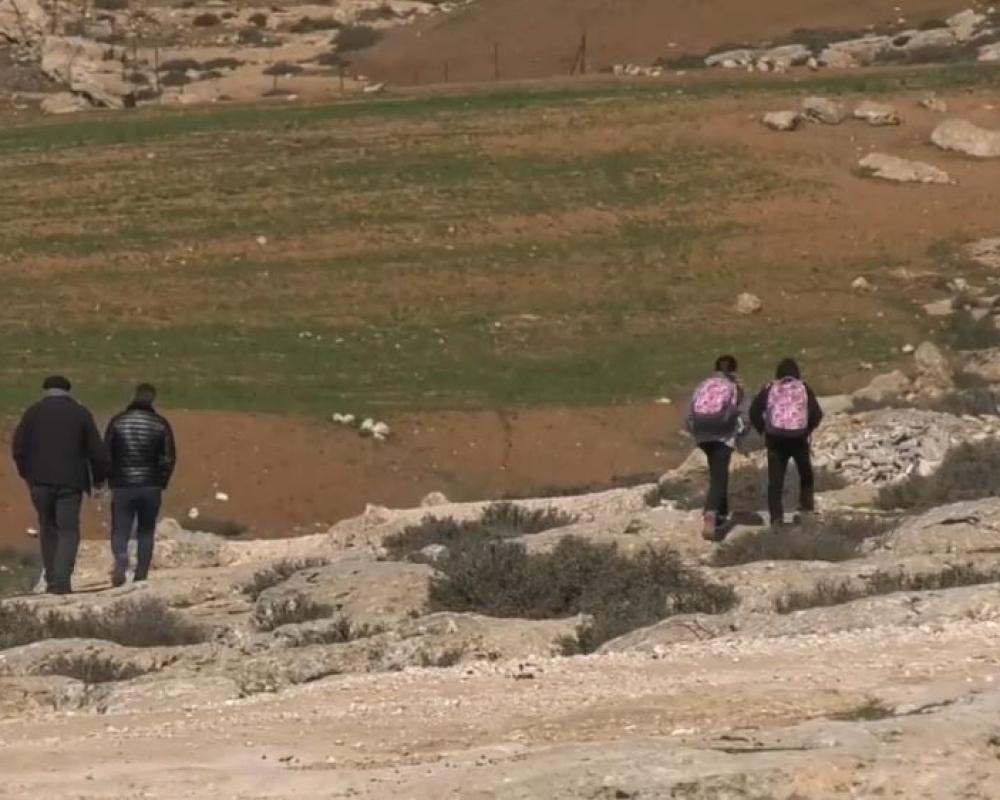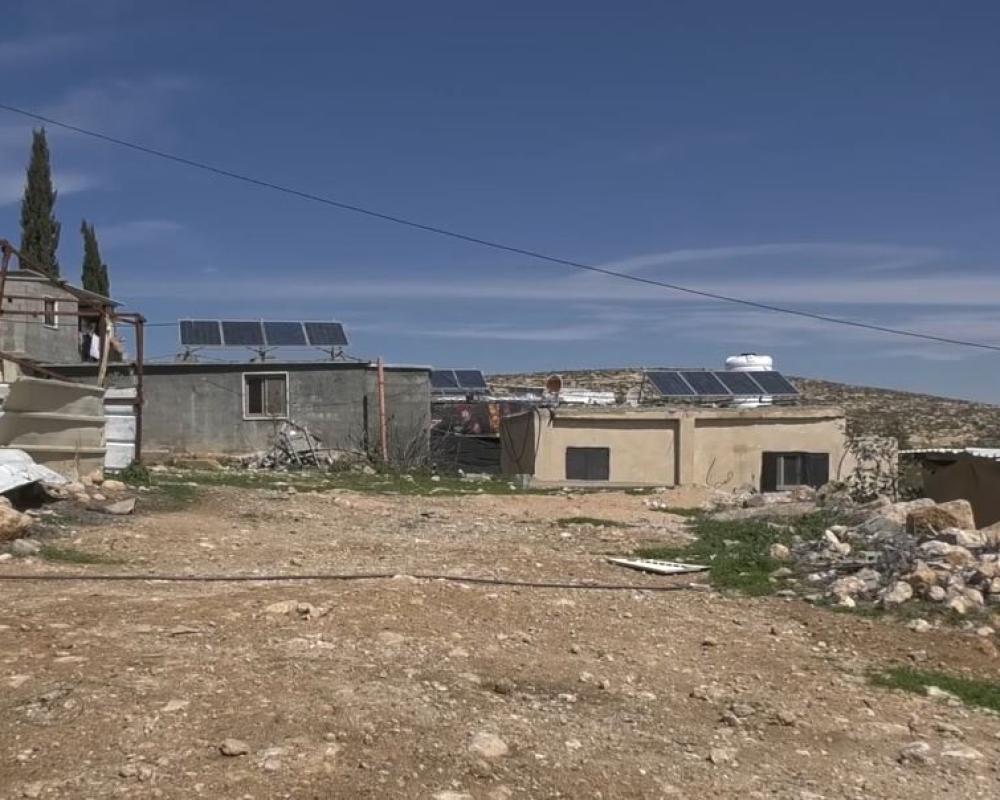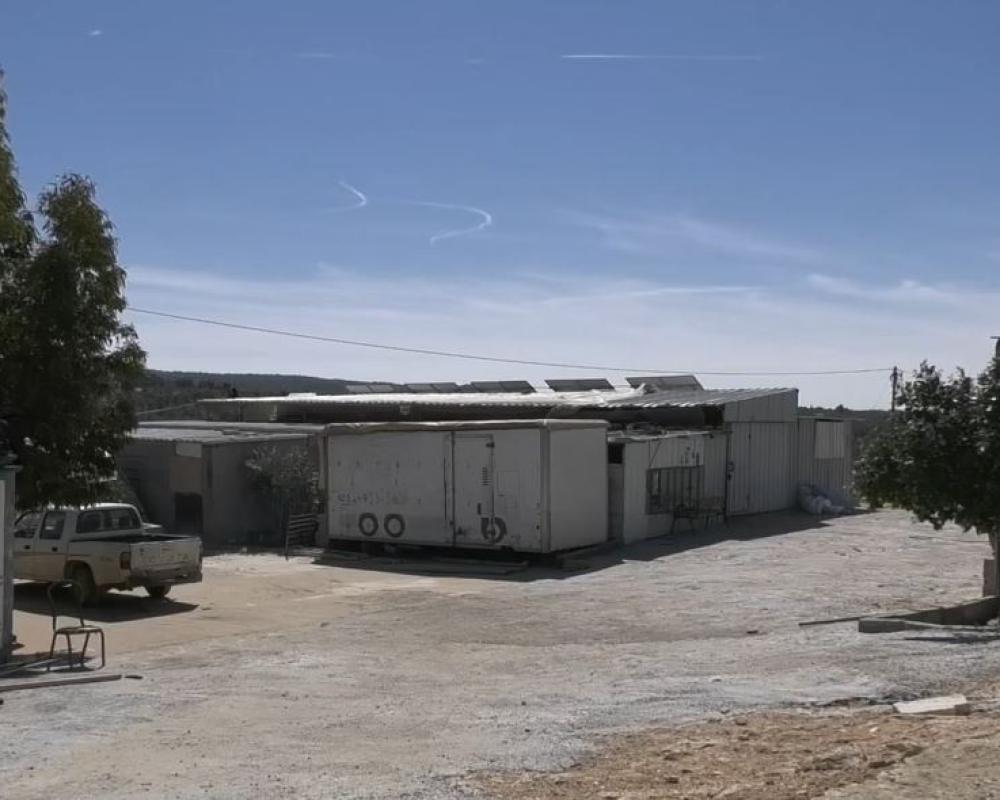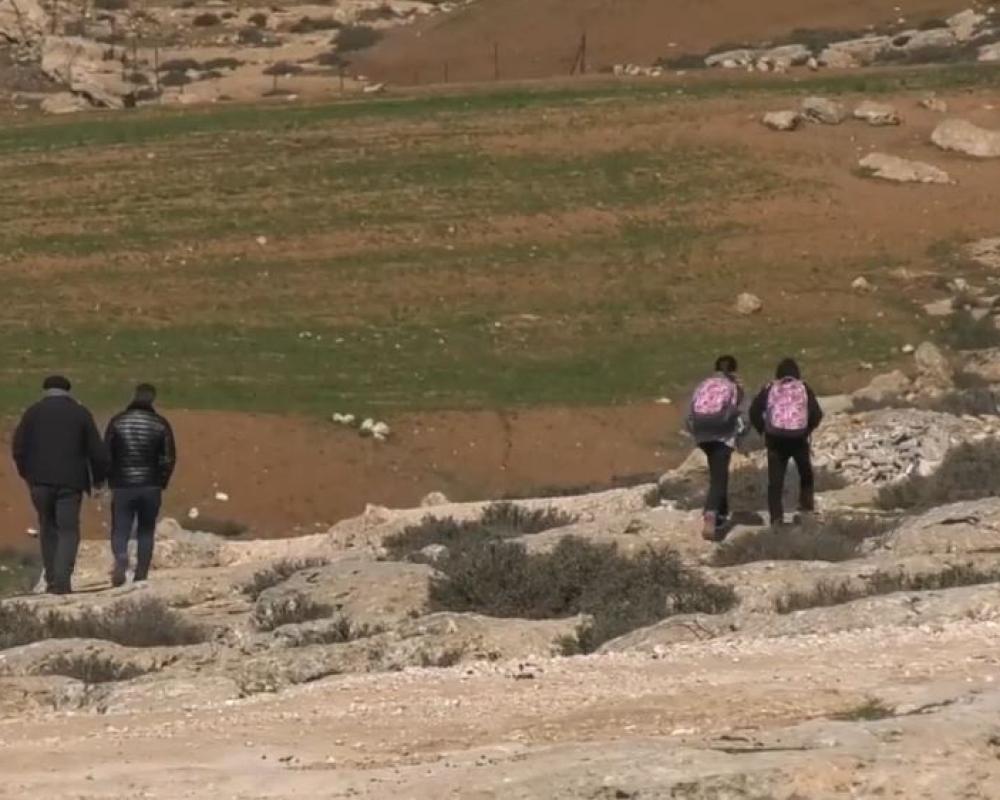
Hebron / PNN /
Palestinian farmer Ibrahim Hamamdeh narrates the ongoing hardships faced by residents of Khirbet Ghuwein, a small community administratively linked to the town of Al-Samu’ in the southernmost part of Hebron, in the occupied West Bank. The village has become a target of intensified Israeli settler violence and military restrictions, aimed at displacing Palestinian families and seizing their land.
The relentless measures include road closures, movement restrictions, and settler-led attacks, as part of wider efforts to annex the area into Israeli settlements. Since the 1994 Oslo Accords, Khirbet Ghuwein has been classified as part of Area C, where Israel maintains full administrative and security control.
Living in Constant Fear
Hamamdeh describes life in the village as a daily struggle filled with fear and uncertainty. "Every time I take my livestock out to graze, my heart races, fearing that settlers might attack my family or our home," he says.
One of the biggest challenges for the village’s children is reaching school. The Israeli military has blocked access roads, and transportation is scarce. Although an official school bus operates in the area, it leaves before the end of the school day, forcing many students to walk back home, putting them at risk of settler assaults.
Residents report that settlers, often riding motorcycles, roam the village with the clear intention of intimidating schoolchildren and spreading fear among the local population.
Due to the area’s remote location and Israeli military control, villagers are often forced to call the Israeli army—the very force enabling settler violence—to remove intruding settlers. "They harass us, hoping we retaliate so they can portray us as the aggressors," Hamamdeh explains. “But when we file legal complaints, nothing happens. How can we expect justice when the judge is our opponent?”.
Systematic Settler Attacks and Neglect
Elderly resident Ismail al-Daghameen, who has lived in Khirbet Ghuwein his entire life, recounts how settlers regularly impose restrictions on the community. They block roads, prevent residents from accessing food and water for their livestock, and obstruct essential supplies needed for daily life.
Beyond settler violence, the village suffers from severe neglect. There are no schools, no medical centres, and road closures have cut off access between Khirbet Ghuwein and Al-Samu’.
Shepherds face additional hardships, as Israeli authorities enforce a 200-metre no-go zone near the separation barrier, reducing grazing land. Meanwhile, road closures prevent the delivery of animal feed, further threatening the village’s agricultural livelihood. According to Hamamdeh, these measures are part of a larger Israeli strategy to force Palestinians off their land through economic and security pressures.
"In past years, settlers have even poisoned our water wells to kill our livestock and endanger our lives," Hamamdeh claims. "They block food and water deliveries, making survival here nearly impossible."
Defiance and Resilience Amid Hardships
Despite these conditions, Hamamdeh remains deeply attached to his land, which has been passed down through generations. "Khirbet Ghuwein is the most beautiful place to live. It represents dignity and resilience," he says. "No matter what, we are staying here. No amount of pressure will drive us away."
Calls for Increased Support
Hamamdeh calls on Palestinian authorities and relevant organisations to support the village. He urges the reinstatement of public transportation to serve students and residents, as well as infrastructure improvements, including the restoration of water and electricity networks frequently damaged by Israeli forces.
"Khirbet Ghuwein is an ancient and historic village, one of the earliest Palestinian communities," he says. "The government must protect it, ensuring that basic services are available to help residents remain on their land and resist Israel’s ongoing efforts to forcibly displace us."
This report was produced as part of the ‘Qarib’ program, implemented by the French Media Development Agency (CFI) in partnership with and funded by the French Development Agency (AFD).
